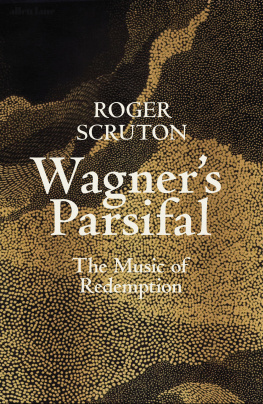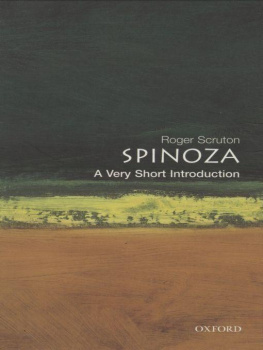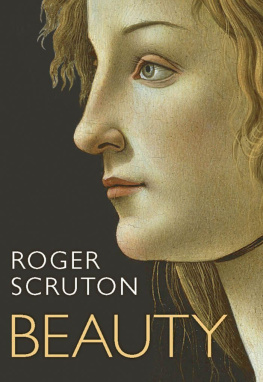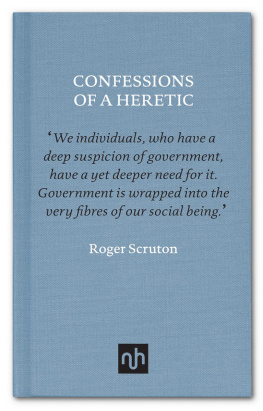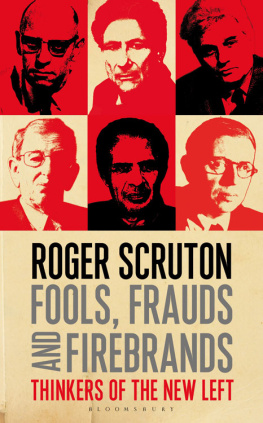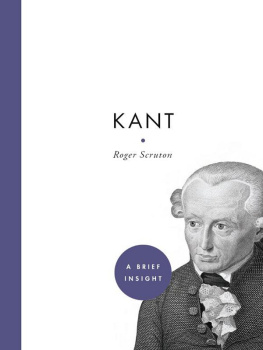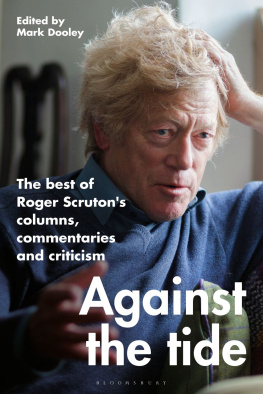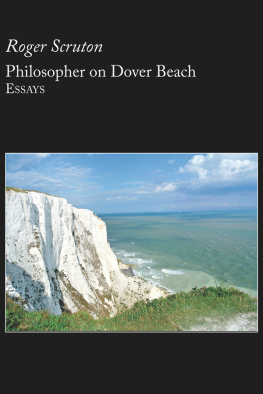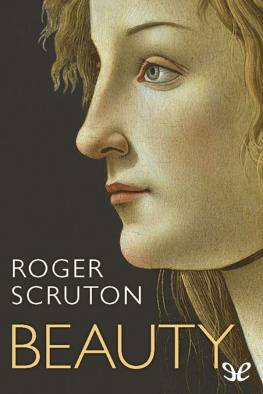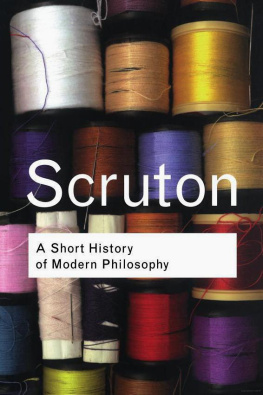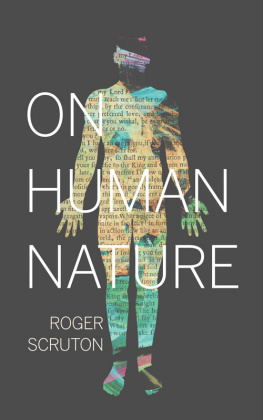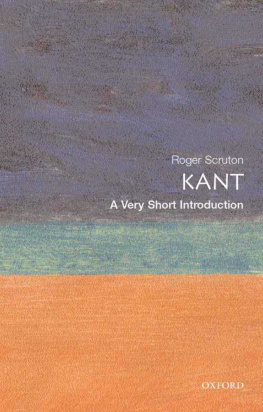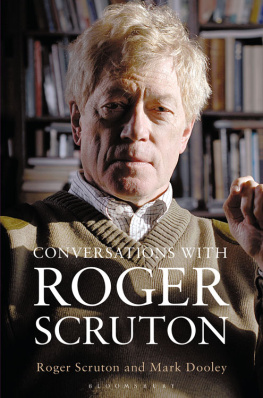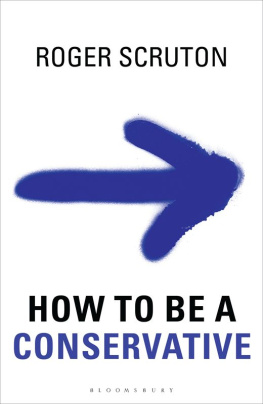Roger Scruton - I Drink Therefore I Am: A Philosopher’s Guide to Wine
Here you can read online Roger Scruton - I Drink Therefore I Am: A Philosopher’s Guide to Wine full text of the book (entire story) in english for free. Download pdf and epub, get meaning, cover and reviews about this ebook. year: 2012, publisher: Bloomsbury Publishing Plc, genre: Science. Description of the work, (preface) as well as reviews are available. Best literature library LitArk.com created for fans of good reading and offers a wide selection of genres:
Romance novel
Science fiction
Adventure
Detective
Science
History
Home and family
Prose
Art
Politics
Computer
Non-fiction
Religion
Business
Children
Humor
Choose a favorite category and find really read worthwhile books. Enjoy immersion in the world of imagination, feel the emotions of the characters or learn something new for yourself, make an fascinating discovery.

- Book:I Drink Therefore I Am: A Philosopher’s Guide to Wine
- Author:
- Publisher:Bloomsbury Publishing Plc
- Genre:
- Year:2012
- Rating:4 / 5
- Favourites:Add to favourites
- Your mark:
- 80
- 1
- 2
- 3
- 4
- 5
I Drink Therefore I Am: A Philosopher’s Guide to Wine: summary, description and annotation
We offer to read an annotation, description, summary or preface (depends on what the author of the book "I Drink Therefore I Am: A Philosopher’s Guide to Wine" wrote himself). If you haven't found the necessary information about the book — write in the comments, we will try to find it.
I Drink Therefore I Am: A Philosopher’s Guide to Wine — read online for free the complete book (whole text) full work
Below is the text of the book, divided by pages. System saving the place of the last page read, allows you to conveniently read the book "I Drink Therefore I Am: A Philosopher’s Guide to Wine" online for free, without having to search again every time where you left off. Put a bookmark, and you can go to the page where you finished reading at any time.
Font size:
Interval:
Bookmark:

Come the palace of Heaven rests on pillars of air.
Come, and bring me wine; our days are wind.
(Hafiz)
This book is not a guide to drinking wine, but a guide to thinking it. It is a tribute to pleasure, by a devotee of happiness, and a defence of virtue by an escapee from vice. Its argument is addressed to theists and atheists, to Christians, Jews, Hindus and Muslims, to every thinking person in whom the joy of meditation has not extinguished the pleasures of embodiment. I have harsh words to say about the health fanatics, about the mad mullahs, and about anybody else who prefers taking offence to seeing anothers viewpoint. But my purpose is to defend the opinion once attributed to Plato, that nothing more excellent or valuable than wine was ever granted by the gods to man, and I am confident that all those who are offended by this innocent endeavour thereby give proof of their irrelevance.
Previous drafts were read by Chris Morrissey, Bob Grant, Barry Smith and Fiona Ellis, and I have benefited greatly from their criticisms. Previous draughts were drunk with Ewa Atanassow and Thomas Bartscherer, who also made valuable suggestions which I have done my best to recall. I am especially grateful to my wife Sophie, for putting up with the twelve years of research that went into the writing of this book. Some of this research was conducted on behalf of the New Statesman, whose editors have shown exemplary patience in tolerating, within the covers of Londons otherwise most respectable left-wing journal, a column devoted to tradition, family, hierarchy, hunting and God, with a few hints as to how those insufferable topics might be swallowed. The column has been a source of great enjoyment to me, and I have drawn freely on the observations that occurred to me while writing it.
draw on material first published in MITs online Technology Review.
Sperryville, Virginia;
Malmesbury, Wiltshire;
Christmas 2008
Prelude
Throughout recorded history human beings have made life bearable by taking intoxicants. And, while societies differ over which intoxicants should be encouraged, which tolerated and which forbidden, there has been a convergence of opinion around one all-important rule: that the result must not threaten public order. The Native American pipe of peace, like the Middle Eastern hookah, illustrates an ideal of social intoxication, in which good manners, uncomplicated affections and serene thoughts are brought into being by communal puffing. Some people see cannabis in similar terms, though research into its neurological effect sheds another and more disturbing light on its social meaning.
The problem case, however, is not cannabis but alcohol, which has an instant effect on physical coordination, on manners, on emotions and on the understanding. A visitor from another planet, observing Russians under the influence of vodka, Czechs in the grip of slivovitz, or American hill-billies blotto on moonshine, would surely favour prohibition. As we know, however, prohibition doesnt work. For if society is sometimes threatened by intoxicants, it is equally threatened by the lack of them. Without their aid we see each other as we are, and no human society can be built on so frail a foundation. The world is besieged by destructive illusions, and recent history has made us wary of them, so wary that we forget that illusions are sometimes beneficial. Where would we be without the belief that human beings can face down disaster and swear undying love? But such a belief persists only if renewed in imagination, and how can this occur if we have no escape route from the evidence? The need for intoxicants is therefore deeply embedded in us, and all attempts to forbid our habits are bound to end in failure. The real question, I suggest, is not whether intoxicants, but which. And while all intoxicants disguise things some (wine pre-eminently) also help us to confront them, by presenting them in re-imagined and idealized forms.
The ancients had a solution to the alcohol problem, which was to wrap the drink in religious rituals, to treat it as the incarnation of a god, and to marginalize disruptive behaviour as the gods doing, not the worshippers. This was a good move, for it is far easier to reform a god than a human being. Gradually, under the discipline of ritual, prayer and theology, wine was tamed from its orgiastic origins to become first a solemn libation to the Olympians and then the Christian Eucharist that brief encounter with the sacred which has reconciliation as its goal.
The religious solution is not the only ancient one. There is also the secular symposium. Instead of excluding drink from society the Greeks built a new kind of society around drink. Not, of course, strong drink of the vodka or whisky kind, but drink just strong enough to permit the gradual loosening of the limbs and of the inhibitions drink that causes you to smile at the world and the world to smile at you. The Greeks were human, and would over-indulge, like Odysseuss crew in Circes palace. They too had their period of prohibition, recorded in the Bacchae of Euripides, which tells the dire story of Pentheus, torn to pieces in punishment for casting out the god of wine. But in the symposium they discovered the custom that brings out the best in wine and the best in those who drink it: the custom through which self-certainty comes even to the timorous. It is this self-certainty, or Selbstbestimmung, as the German romantic philosophers called it, that is the subject of this book.
The symposium invited Dionysus, god of wine, into a ceremonial precinct. Guests, garlanded with flowers, would recline two to a couch, propped on their left arm, with food on low tables before them. Decorous slaves filled their cups from a communal mixing bowl, in which the wine would be diluted with water so as to postpone for as long as possible the moment of inebriation. Manners, gestures and words were as strictly controlled as at the Japanese tea ceremony, and guests would allow each other time to speak, to recite or to sing, so that conversation remained always general. One such event, recorded and embellished by Plato, is familiar to all lovers of literature as the scene of the encounter between Socrates and Alcibiades. Platos Symposium is designed as a tribute to Eros. It is really a tribute to Dionysus (or Bacchus, as the Romans called him) and illustrates the ability of wine, when properly used, to set love and desire at a distance that makes them discussable.
The Greek symposium was exclusive and highly privileged only men could participate, and only men of a certain class. But the principle applies more widely. Wine is an addition to human society, provided it is used to embolden conversation, and provided conversation remains civilized and general. We are appalled by the drunkenness in our city streets, and many are tempted to blame alcohol for the riot, since alcohol is part of its cause. But public drunkenness, of the kind that led to prohibition, arose because people were drinking the wrong things in the wrong way. It was not wine but its absence that caused the gin-sodden drunkenness of eighteenth-century London, and Jefferson was surely right to argue that, in the American context, wine is the only antidote to whiskey.
The social drinking of wine, during or after a meal, and in full cognizance of its delicate taste and evocative aura, seldom leads to drunkenness, and yet more seldom to loutish behaviour. The drink problem that we witness in British cities stems from our inability to pay Bacchus his due. Thanks to cultural impoverishment, young people no longer have a repertoire of songs, poems, arguments or ideas with which to entertain one another in their cups. They drink to fill the moral vacuum generated by their culture, and while we are familiar with the adverse effect of drink on an empty stomach, we are now witnessing the far worse effect of drink on an empty mind.
Next pageFont size:
Interval:
Bookmark:
Similar books «I Drink Therefore I Am: A Philosopher’s Guide to Wine»
Look at similar books to I Drink Therefore I Am: A Philosopher’s Guide to Wine. We have selected literature similar in name and meaning in the hope of providing readers with more options to find new, interesting, not yet read works.
Discussion, reviews of the book I Drink Therefore I Am: A Philosopher’s Guide to Wine and just readers' own opinions. Leave your comments, write what you think about the work, its meaning or the main characters. Specify what exactly you liked and what you didn't like, and why you think so.

